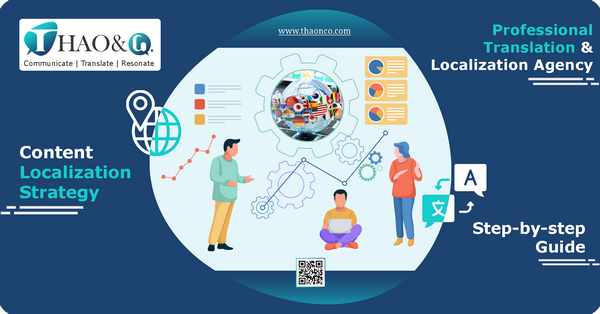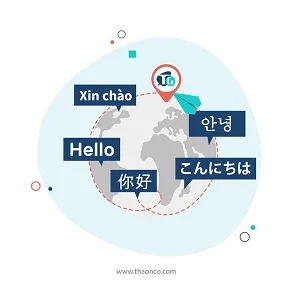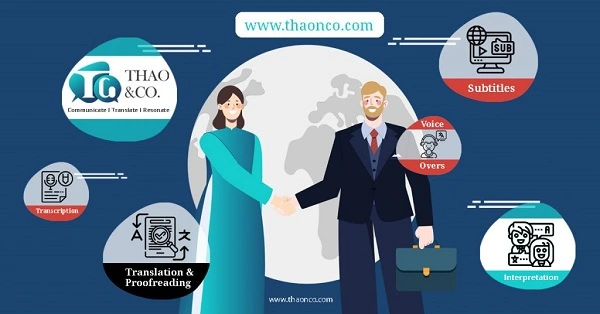Why do businesses need to develop a content localization strategy? According to a study conducted by CSA with 8,709 consumers across over 29 countries, up to 76% of online shoppers prefer buying products with information presented in their native language. Additionally, 40% of people stated that they would never purchase from websites written in a language other than their mother tongue.
Research shows that content localization plays a vital role in the success of a business in the international market. So, what exactly is a content localization strategy? Here’s everything you need to know about content localization strategies and how to ensure the success of your localization project.
Content localization is essential when an organization or business wants to adapt its current content for a new market.
Content localization goes beyond translation from one language to another. It ensures that the target language aligns with the cultural norms of the local region. Besides, Website Translation needs to be SEO friendly in order to access more traffic on local search engines.
Meanwhile, a content localization strategy refers to a broader plan that a company or organization develops to implement content localization. This strategy includes steps such as defining goals, selecting appropriate localization partners, coordinating with translation and localization companies, testing, and assessing project success. These steps ensure your content is properly delivered to the target market.
A content localization strategy acts as a compass for the localization process, ensuring that your localized content resonates with your business objectives and target audience.

To develop a comprehensive content localization strategy, consider the following steps.
Before developing a strategy, you need to identify your localization objectives. This is the basis for developing suitable tactics to achieve your objectives.
Localization objectives could be introducing your product to a new market, adding new languages to your website, improving website visibility on search engines, etc.
This involves precisely determining which content needs localization and analyzing your target market, customer profiles, and their preferred language.
It’s advisable to learn more about localization examples of global brands to avoid common mistakes and problems.
In the next step, you’ll need to look for the most suitable translation and localization service. Some criteria for choosing a reputable content localization agency are:

Depending on the specific workflow of your localization agency, you can start working out the details to implement your strategy. This may include:
Localization testing is an essential step before officially releasing your product. At this point, you may need to check whether the translated content uses appropriate language, adheres to cultural norms, and reflects the target market’s cultural nuances.
If the localized content is meant to be integrated into a software application or published on a website, functional testing is indispensable. Common problems may include interface and display errors, slow loading times, and others.
In this final step, you may consider assessing the success of your localized content. To evaluate how well your localized content performs, establish relevant metrics based on your initial objectives.
For instance, if your objective is to enhance user experience on your website in a new market, measurement metrics might include website traffic, bounce rate, time on site, etc.
If any of these criteria fall short of expectations, swiftly identify the causes and address them.
To give your content localization strategy a boost, consider the following points:
Content localization strategy is vital in the mission of global business development. Therefore, translation and content localization agencies play a crucial role in accomplishing this mission.

At Thao & Co. Translation Agency, we have collaborated with various major businesses in their globalization efforts. We are confident in our capabilities to assist you with your content localization strategy and create an impact in your target market. All projects at Thao & Co. are done by a team of expert linguists who possess an extensive understanding of the market and expertise in various fields. Additionally, we are committed to providing you with a transparent workflow and a range of high-quality complementary services that cater to all your needs.
In this article, we have discussed everything you need to know for a successful content localization strategy. If you are seeking an agency for your localization project, please do not hesitate to contact Thao & Co. through our Get a Quote page for more detailed information!